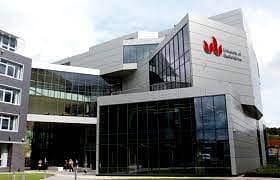his exceptional course will enhance your skills across artistic, academic, educational and community contexts, offering you the opportunity for professional-level repertory performance practice along with membership of The Ensemble, our postgraduate university dance company. The programme also offers a truly global perspective with students and choreographers from around the world bringing a wealth of ideas and diversity.
Units include repertory and performance; choreographic and dance research; somatic practice; and dance psychology. The emphasis is on the health of mind and body through dance practice and includes contemporary dance, yoga, improvisation, fusion styles and dance science.
You can choose a written dissertation or a practical research project in performance, choreography, dance film-making, teaching/pedagogy or experimental performance.
Why choose this course?
- Gain high-level practical, professional and theoretical skills in performance and/or choreographic practice
- Work with a dynamic, experienced team of tutors with internationally significant experience as academics, practice-led researchers and dance artists
- Our recent choreographers include Julia Cheng, Urja Desai Thakore, Sung Im Her, Annie Lok, Simonetta Alessandri, Colin Poole and Tim Casson
- Benefit from professional-level facilities including four dance studios, an 80-seat studio theatre and a 300-seat main-stage theatre
- Develop your professional network through our existing relationships with key organisations such as Arts Council England; Youth Dance England; dance agencies and development organisations; performance venues; professional dance companies; independent artists; community arts organisations; colleges and schools
- Our graduates can be found working in the UK and internationally, in fields including freelance dance artist or choreographer; education or wider community environments; the film/video industry; and commercial sector
- Our graduates include Hayley Lemon, teaching artist at Dance East; Katie Boag and Ash Goosey, independent choreographers for Arts Council projects; Emma Bouch, lead artist at NK Dance; and Katie Bateman, dancer/entertainer on Disney cruises
Unit Information - What will I learn?
Units
- Choreographic Research (PER008-6) Compulsory
- Dance Research Project/Dissertation (PER001-6) Compulsory
- Repertory And Performance (PER010-6) Compulsory
- Researching Dance (PER002-6) Compulsory
- The Repertory Artist: Skills, Roles And Contexts (PER021-6) Compulsory
- Somatic Practice (PER007-6) Optional
- The Dancing Mind: Dance Psychology (PER009-6) Optional
How will I be assessed?
Assessment drives the curriculum, and responds to course aims and learning outcomes by creating opportunities for students to demonstrate skills, knowledge and abilities through a diverse range of practical, creative and critically informed contexts. Assessment of practice mirrors professional working environments and expectations as far as possible, and tests skills and abilities as a means of enhancing and preparing for the demands of future employment. This strategy emphasises the course teams concern with student acquisition of professionally equivalent skills and abilities, and it places a premium on testing independent critical thinking as a catalyst for developing reflective and articulate artists, and independent and confident researchers. Methods of assessment typify expectations of post-graduate study in advanced dance performance and include; public and in-studio performances, practical examinations, choreographic presentations, seminar presentations, oral examinations, literature reviews, essays, and case studies. This range and diversity of testing offers opportunities for you, and for the staff team, to explore your relative strengths and weaknesses, and to respond positively to individual challenge through a supportive and personalised learning environment. Feedback is an essential part of the learning and assessment process, and key to your improvement and development. Feedback will take several formative and summative forms, and formative responses to your work will be used to enable you to review and improve in advance of summative assessment wherever possible. Feedback methods, both summative and formative, may include; verbal commentary, ongoing practical explorations, peer and tutor response to work in progress showings, in-tutorial response to emerging written work, and summative feedback on final projects and submissions. For students, assessment identifies: - Achievement against Learning Outcomes - Successful application of learning and understanding - Areas of development and improvement - Areas requiring specific further study For tutors and the course team, assessment provides opportunity for: - Reflection on currency and validity of the Course Aims - Monitoring of individual student progress - Identifying individual learning problems and areas of concern Feedback on teaching, learning and assessment strategies In the Repertory Artist: Skills, Roles and Contexts unit you will work in partnership with course-peers, and with students from other postgraduate performing arts programmes, to refine and develop your performance and collaborative skills. Typically this work will draw on the expertise of the different sectors involved, and reflect the scope and nature of creative partnership-working in the professional sector. The opportunity to work as part of a group will help you to develop transferable skills such as taking initiative, communication, team working and decision making. Where group-work is used all students will achieve an individual grade for their contribution to the work. Your ability to carry out independent research is underpinned and developed throughout the assessment tasks of the core and elective units on the course, but culminates in the design and delivery of your independent Dance Research/Dissertation project. This provides you with the opportunity to utilise your skills, knowledge and abilities as an artist-scholar, and to research and manage a large-scale project.


